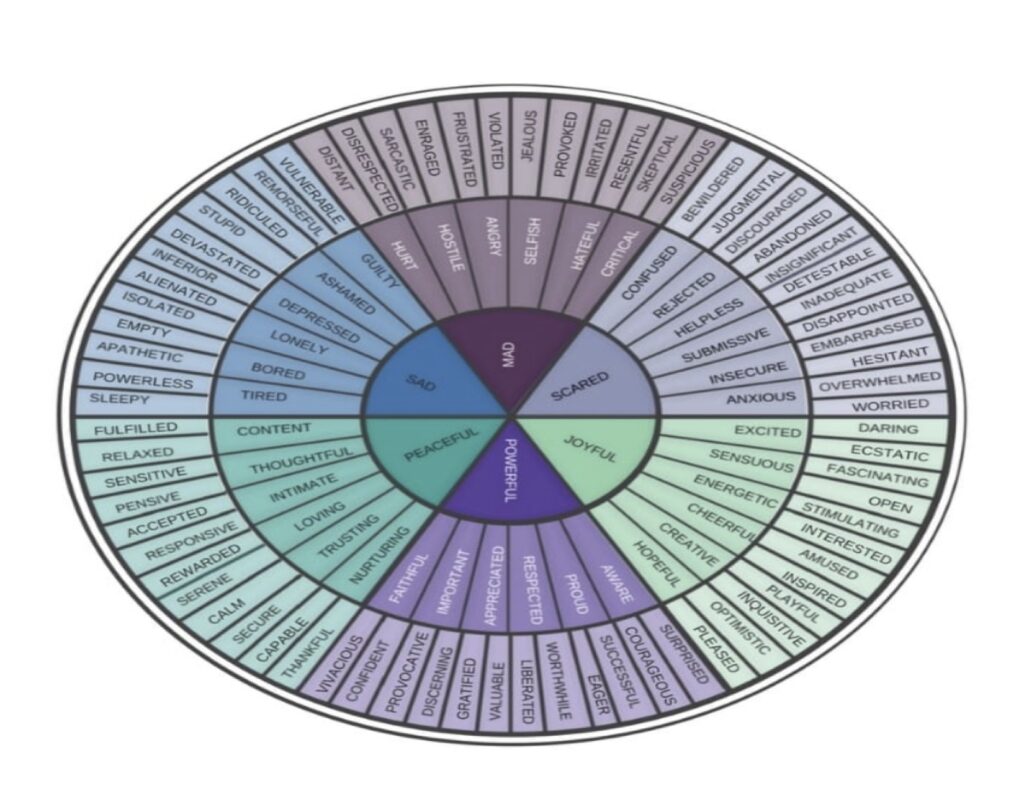Week 1
Addressing Depression
Goal
To understand the cause of depression and how to avoid depression itself.
- To understand depression
- To identify the signs and symptoms of depression
- To determine ways to avoid or get out of depression
John 8:12 - “Then spake Jesus again unto them, saying, I am the light of the world: he that followeth me shall not walk in darkness, but shall have the light of life.”
Psalm 42:11 - “Why art thou cast down, O my soul? and why art thou disquieted within me? hope thou in God: for I shall yet praise him, who is the health of my countenance, and my God.”
Joseph Beats the Odds
The handsome boy, Joseph, was born to Jacob, to whom Jesus had revealed the plan of salvation. Joseph belonged to a large family, being one of twelve 12 sons. The children were the products of polygamous marriages, though this was not a part of God’s plan. Jealousy caused many problems in the family relationships and would especially affect Joseph, who was the son of Jacob’s favorite wife.
At an early age Joseph seemed to be a lad of noble character, showing obedience to his earthly father, as well as his heavenly Father. He was Jacob’s favorite child. And unfortunately, Jacob showed more love to Joseph than the other children. By showing more preference to this child of his old age, problems arose between Joseph and his siblings. An expensive coat that Joseph received from his father was especially a catalyst in evoking feelings of jealousy.
One day Joseph had a dream that he shared with his family. “Behold,” he said, “we were binding sheaves in the field, and, lo, my sheaf arose, and also stood upright; and, behold, your sheaves stood round about, and made obeisance to my sheaf” (Genesis 37:7). The brothers were enraged by the interpretation of the dream indicating that Joseph would reign or have dominion over them. To make matters worse, Joseph had another dream that he related to his family: “Behold, the sun and the moon and the eleven stars made obeisance to me” (Genesis 37:9). Here again, the interpretation was similar to the first dream, and the future of Joseph was being revealed through his dreams.
A tide of events, however, would occur in Joseph’s life that none could imagine. On an ordinary day, Jacob began to fear the safety of Joseph’s brothers who had left the father’s house to feed his flocks in Shechem. Joseph was sent to check on his brothers who were a great distance from home. When he didn’t find them upon his arrival in Shechem, and he got word that they were in Dothan, Joseph continued to pursue his course. Unfortunately, when the brothers saw him approaching them, they conspired against him to slay him.
Joseph’s brothers said, “Come now therefore, and let us slay him, and cast him into some pit, and we will say, ‘Some evil beast hath devoured him and we shall see what will become of his dreams' “ (Genesis 37: 20). One brother by the name of Reuben protested against killing him, and instead, he was cast into a pit. The brothers stripped him of his special coat before throwing him in the pit.
Soon after the brothers sat down to eat bread, they saw a company of Ishmealites who were heading down to Egypt. Judah suggested selling him to the Ishmealites, and everyone was content with that plan except for Reuben. Reuben was hoping to return to the pit to get his brother and bring him home to his father. Joseph could not have imagined how his life would be changed in an instant. Ultimately, he was sold to Potiphar, captain of the king’s guard. Not only was Joseph suddenly taken away from his loving father and familiar surroundings, but he was also now in an environment where the people did not worship God.
In spite of the challenges that Joseph was faced with, he “would serve the Lord with undivided heart; he would meet the trials of his lot with fortitude and perform every duty with fidelity” (White, 2005). During the ten years he spent in Potiphar’s house, he would be promoted to be his steward. While serving in that role, he was falsely accused of attempted rape by Potiphar’s wife and was thrown into prison. Not only did Joseph suffer for refusing to betray Potiphar’s confidence, but also for not wanting to sin against God. Even though he was cast into prison, Joseph continued to do all that duty demanded. In the midst of all his trials, it would become evident that God was blessing him.
TO BE CONTINUED . . .

- 1. What family dynamics contributed to the hatred of Joseph’s brothers towards him?
2. What does the reality that Joseph’s brothers belonged to a godly home say about the evil that can exist in the heart?
3. Why is it dangerous to harbor negative emotions like anger, jealousy and hatred even when you are the one wronged?
4. Why is it important to do what duty demands, that is, to follow God’s principles in every circumstance? How did Joseph demonstrate that he placed duty above his inclination, considering he
must have been deeply hurt by his brothers’ insulting words and unjust actions?5. Is it wise to take matters of injustice into your own hands or should you ask for help from the Lord, and sometimes from responsible adults? Explain what evidence is given in the text that Joseph committed his problems to God.
6. How did Joseph place duty above pleasure when Potiphar’s wife made advances towards him?
7. Minds that are disciplined to carry out one’s duty do not change easily. How can you discipline your mind so you do not waver between right and wrong?
8. In the life of Joseph principles like honesty, faithfulness, truth, loyalty, and compassion were evident. Choose one of the above-mentioned principles and say how you can demonstrate it on a daily basis.
9. The formation of a noble character (involving thoughts, feelings, and actions) requires daily effort. How crucial is it to examine your character on a constant basis?
10. How valuable is prayer, Bible study, and scripture memorization in developing and maintaining a noble character?

Depression affects 350 million people worldwide. At least one in four women will suffer from major depression at some point in her life. At least one in eight men will suffer from major depression at some point in his life. Depression impacts everyone in some way. And sadly, many children struggle with depression as well.
Several factors may adversely impact childhood and trigger depression in children. Some children’s stress response to traumatic events such as abuse, medical trauma, community violence, poverty, neglect, loss of a parent or beloved caregiver, or even negative talks from others in the form of bullying can invite negative self-talk that paves the way for depression. Sexual abuse is another major factor that contributes to depression. Based on data from The National Child Traumatic Stress Network (NCTSN), more than two thirds of children reported at least one traumatic event by age 16. About one in 10 children will be sexually abused before their 18th birthday. About one in seven girls and one in 25 boys will be sexually abused before turning 18.
Among teenagers, there is mounting evidence that social media can have profoundly adverse effects on mental health. Teens increasingly report feeling lonely; they spend more time communicating electronically and less time interacting face-to-face with family and friends. Instead of playing outdoors, children more so are prefering to be on their technical devices. The decline of outdoor play in childhood contributes to depression, and it deprives children of a vital source of joy.
Childhood depression is different from the usual sadness and everyday emotions that children go through as they develop. Just because a child seems sad doesn’t necessarily mean they have depression. However, when the sadness becomes persistent or interferes with normal social activities, interests, schoolwork, or family life, it may mean they may have depression. The primary symptoms of depression revolve around sadness, a feeling of hopelessness, and mood changes.
Children should be encouraged to share their sad thoughts with a trusted adult. Unless the child is permitted to share their thoughts and feelings about their situation, it can be challenging to identify if they are sad or depressed. The effects of depression, such as persistent negative thinking, decreased memory, and increased stress hormones, can lead children to draw away from others. Therefore, creating a safe space for children to share is essential.
Children can and do recover from traumatic events that lead to depression. Christian adults can play an important role in their recovery. A critical part of children's recovery is having a supportive caregiving system which can include parents, educators, or supportive staff at a school or church. These individuals should be ready to take the necessary time to teach, listen, and show their love and support.
Children need to be taught how to handle trials. “When trials come to us, let us not dwell upon the greatness of the difficulties and feel that we cannot have joy in the Lord. It is true we will have changes in feelings. There will come to us times of discouragement and depression, but shall we live by feeling or by faith? When our brethren and friends speak unadvisedly and cause us grief, let us not be cast down. Let us remember that we are in a world of trial and grief, of sorrow and disappointment. When these experiences come to us, they should drive us to Christ” (White, 1982). If children are left to cope on their own with the negative feelings that arise, they can develop negative coping skills in the form of addictions, such as video games, pornography, self-harm, harm to others, and substance abuse. Sadly, these strategies will only compound their trauma.
Another devastating result of depression is misconceptions about God, as well as the feeling that one may be separated from God. Depression can also cause some to have a difficult time accepting God’s eternal love. Unfortunately, the deep sadness that results from trauma in children can draw them away from the desire to have a relationship with God the Father and Jesus. Separation from God makes them more attracted to sinful lusts and desires.
Depression is commonly referred to as being in “a dark place.” According to scientists, darkness is simply the absence of light. Since darkness is what you get after the light stops, the opposite is also true. Where there is light, darkness is gone. Jesus is the light needed to expel darkness. Jesus says, “I am the way, the truth, and the life” (John 14:6). This is the beautiful truth and hope necessary to overcome depression. Instead of focusing on the pain of depression, look to Jesus. Living in the light of Christ will dispel the darkness of depression. “When temptations assail you, when care and perplexity surround you, when depressed and discouraged, you are ready to yield to despair, look to Jesus, and the darkness that encompasses you will be dispelled by the bright shining of HIS presence. When sin struggles for the mastery in your soul, and burdens the conscience, look to the Saviour. His grace is sufficient to subdue sin” (White, 1905).
By looking to Jesus, there is hope. He took the penalty for our sins so that you can have His joy. His example of dealing with depression makes it possible for all to stop the cycle of sin. He experienced depression caused by sin at the cross. “As He (Jesus) neared Gethsemane he became strangely silent. His disciples were perplexed, and anxiously regarded his countenance, hoping there to read an explanation of the change that had come over their Master. They had frequently seen him depressed, but never before so utterly sad and silent. As he proceeded, this strange sadness increased; yet they dared not question him as to the cause” (White, 1878). “Christ’s agony did not cease, BUT depression and discouragement left Him. The storm had in nowise abated, but he who was its object was strengthened to meet its fury. He came forth calm and serene. A heavenly peace rested upon His bloodstained face. He had borne that which no human being could ever bear; for He had tasted the sufferings of death for every man” (White, 2002).
We have a wonderful Savior who can deliver us from the pain and experiences that lead to depression. “When depression settles upon the soul, it is no evidence that God has changed. He is ‘the same yesterday, and today, and forever.’ You are sure of the favor of God when you are sensible of the Beams of the Sun of Righteousness; but if the clouds sweep over your soul, you must not feel that you are forsaken. Your faith must pierce the gloom. Your eye must be single, and your whole body shall be full of light. The riches of the grace of Christ must be kept before the mind” (White, 1977).

- What kinds of problems do children face that may lead to depression?
- How does social media impact children’s mental health?
- What behaviors do children display that may indicate they are depressed?
- When someone is depressed, what types of feelings do they experience?
- What common phrase is used to describe depression and why?
- Is depression a sin, why or why not?
- Jesus is often referred to as the Light of the world. How is that knowledge helpful to those dealing with depression?
- Sadly, children experience trauma. Have you ever experienced any traumatic events in your life?
- If you experience something traumatic, are there any Christian adults in your life that you feel safe talking to?
- What can you do to support your friends who have experienced traumatic events in their lives?

bullying: a deliberate and unsolicited action that occurs with the intent of inflicting social, emotional, physical, and psychological harm to someone who often is perceived as being less powerful.
community violence: exposure to intentional acts of interpersonal violence committed in public areas by individuals who are not intimately related to the victim.
depression: an illness that involves the body, mood, and thoughts and affects the way a person eats and sleeps, the way one feels about oneself, and the way one thinks about things. One of the most common symptoms of depression in children is irritability. Children may also show symptoms more like those adults exhibit: sadness, lethargy, lack of interest in and withdrawal from activities once enjoyed, disturbed sleep patterns, feelings of worthlessness or guilt, and involvement in self-destructive behavior.
fidelity: faithfulness to a person, cause or belief, demonstrated by continuing loyalty and support.
fortitude: courage in pain or adversity.
medical trauma: Pediatric medical traumatic stress refers to a set of psychological and physiological responses of children and their families to single or multiple medical events.
neglect: the ongoing failure to meet a child's basic needs and the most common form of child abuse. It includes failure to care for a child and probably harming them in the process. Neglecting a child is worse than ignoring a child.
physical abuse: occurs when a parent or caregiver commits an act that results in bodily injury to a child or adolescent.
polygamous: having a type of relationship that typically involves one person marrying more than one partner.
pornography: books, magazines, movies, etc. with no artistic or moral value that describe or show sexual acts or naked people in a way that is intended to be sexually exciting. It may be presented in pictures, movies, or writing that show or describe sexual behavior.
obeisance: a gesture expressing respect and high regard such as a bow or curtsy.
sexual abuse: any sexual interaction between a child and an adult (or another child). The child is used for the sexual stimulation of the perpetrator or an observer.
sheaves: a bundle of stalks and ears of grain.
sin: “the transgression of the law” (according to the Bible). “It is the outworking against the great law of love which is the foundation of God's government” (White, 1911).
steward: manager of another’s property.
trauma: When a child feels intensely threatened by an event, he or she is involved in or witnesses, we call that event a trauma.
traumatic grief: While many children adjust well after the death of loved ones, other children have ongoing difficulties that interfere with everyday life, and experience difficulty in recalling their loved ones' positive memories.

Students should peer up to complete the activity in writing. Students should:
- determine what emotion they or another person may experience (positive or negative) for each situation. Use the wheel below to help you choose the correct emotion; that is, the feeling or mood.
- say what is their duty in each situation. (Remember that duty is following God’s principle in every circumstance. It’s a moral and legal obligation).
- change partners upon completion of the task to see how their answers compare.
Example
SITUATION: A friend gets a higher grade than you EMOTION: jealousy
DUTY: Be happy for his/her accomplishment
SITUATION: Jane suggested that we skip class to do something naughty
EMOTION: _________________________________________________
DUTY: _____________________________________________________
SITUATION: I have been failing most of my classes
EMOTION: __________________________________________________
DUTY: _____________________________________________________
SITUATION: Kendra slapped the boy because he kept talking
EMOTION: _________________________________________________
DUTY: _____________________________________________________
SITUATION: I was the only one who was punished in the whole class
EMOTION: _________________________________________________
DUTY: _____________________________________________________
SITUATION: I wonder if my family ever thinks about me
EMOTION: _________________________________________________
DUTY: _____________________________________________________
SITUATION: Judy’s father refuses to visit her again
EMOTION: _________________________________________________
DUTY: _____________________________________________________





